When it comes to waste reduction and diversion, our philosophy is to start at the source. This means reducing waste output first and foremost, so that there is less to divert. When waste has been generated, it is important to recycle and compost materials appropriately before going to the last resort – the landfill.
Waste Reduction
Planning ahead is the most effective way to ensure materials are kept out of the landfill. Resources like our zero-landfill checklist, event planning guide, and sustainable swag purchasing guide are here to help you minimize waste upstream. Download them and learn more
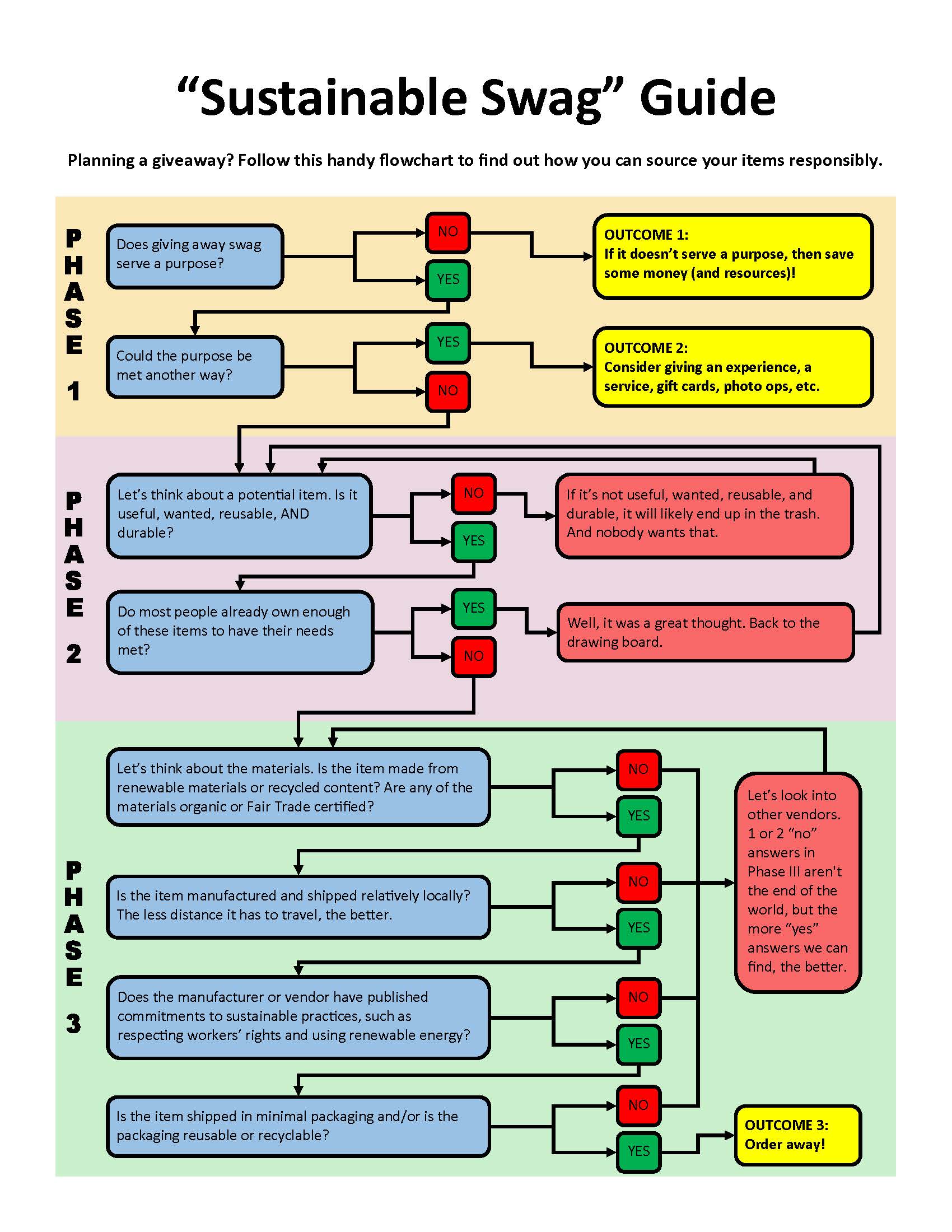
Sustainable Swag Guide
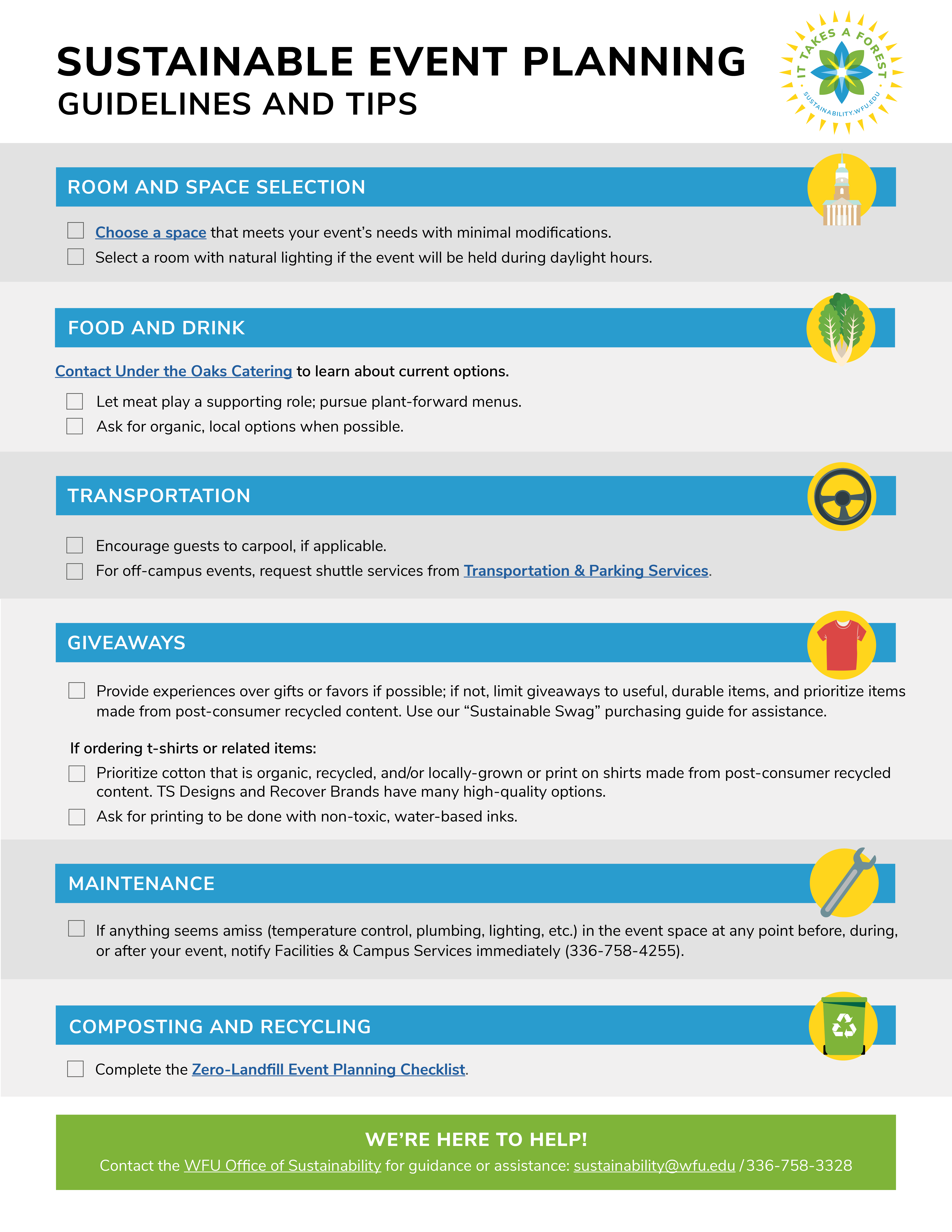
Event Planning Guide
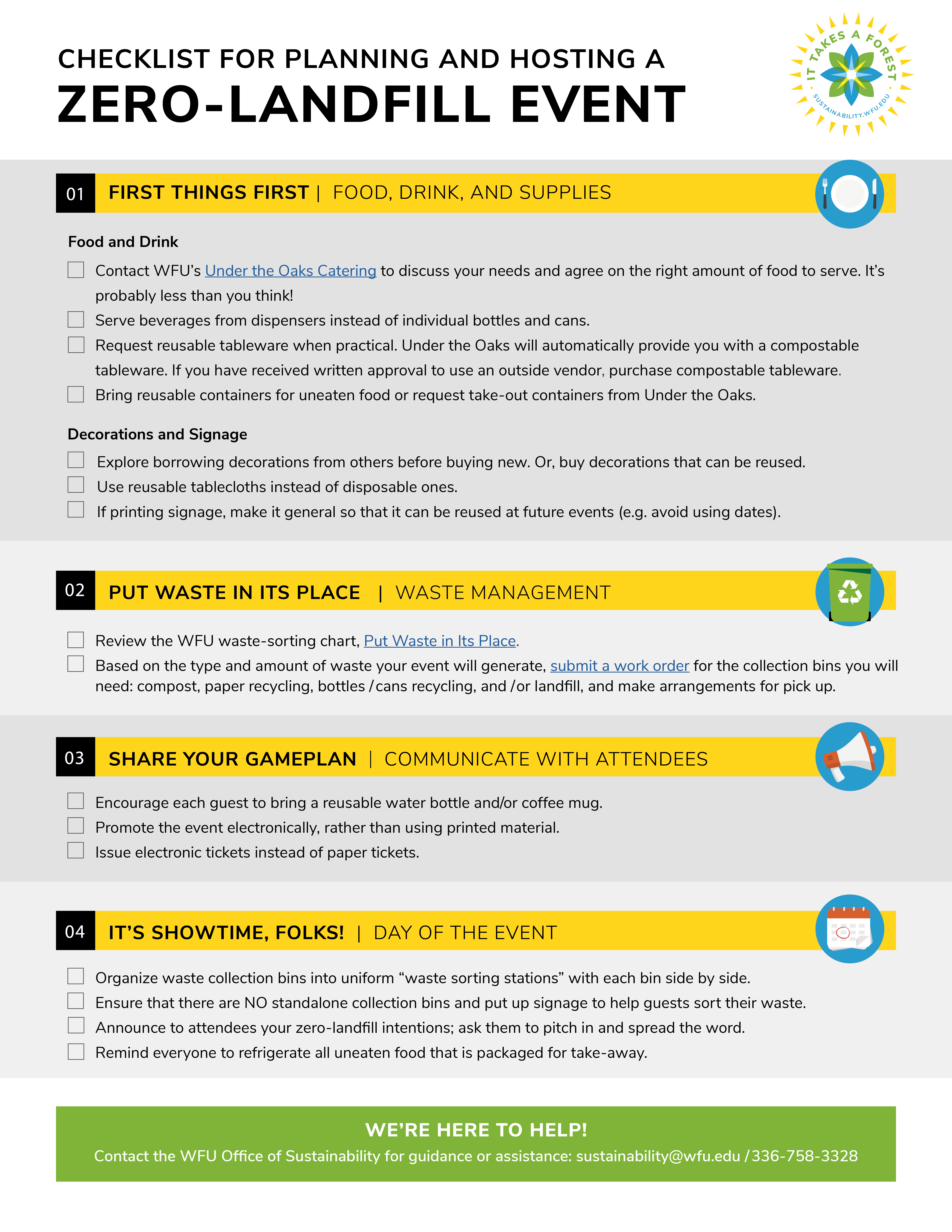
Zero-Landfill Event Checklist
Recycling at Wake Forest
The Office of Waste Reduction and Recycling, within Facilities and Campus Services, is responsible for recycling and materials management at Wake Forest. Through continuing initiatives such as the Surplus Property program and E-Waste recycling program, the Office of Waste Reduction and Recycling plays a critical role, diverting campus waste to be either reused, upcycled, or recycled.
The recycling collection program at Wake Forest began in January of 1998. Since then, a number of milestones in developing and communicating a standard operating procedure for waste and recycling collection on campus have occurred. Multiple upgrades led to the current standardized color-coded collection infrastructure you see on campus.
Green recycling totes are distributed during move-in to all new incoming students. Students are encouraged to keep their recycling totes for the duration of their time at WFU.
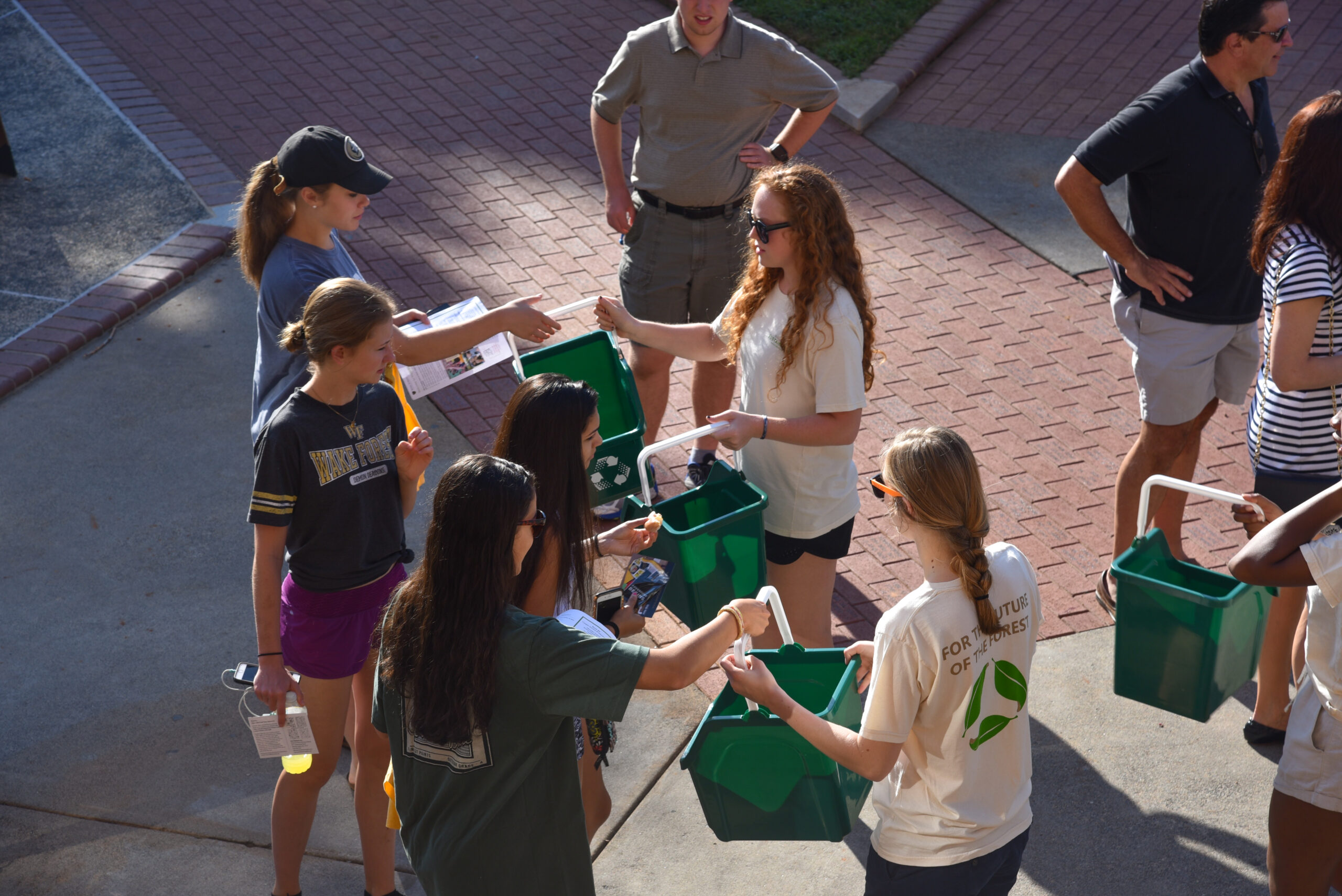
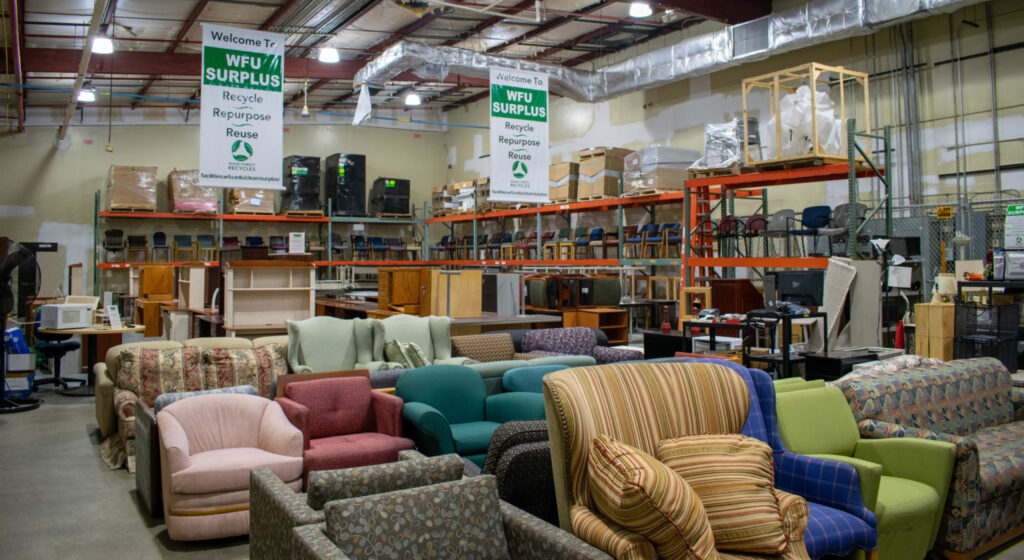
Put Waste In Its Place
WFU uses a multi-stream recycling system, which means that cardboard, bottles/cans, and paper are all sorted separately. Use the “Put Waste in its Place” guide to sort your waste correctly at Wake Forest. Keep in mind that disposable cups are not recyclable at Winston-Salem recycling centers. This is a common misconception that we see.
If you would like to print a copy of the Put Waste in Its Place poster, you can download the PDF here.
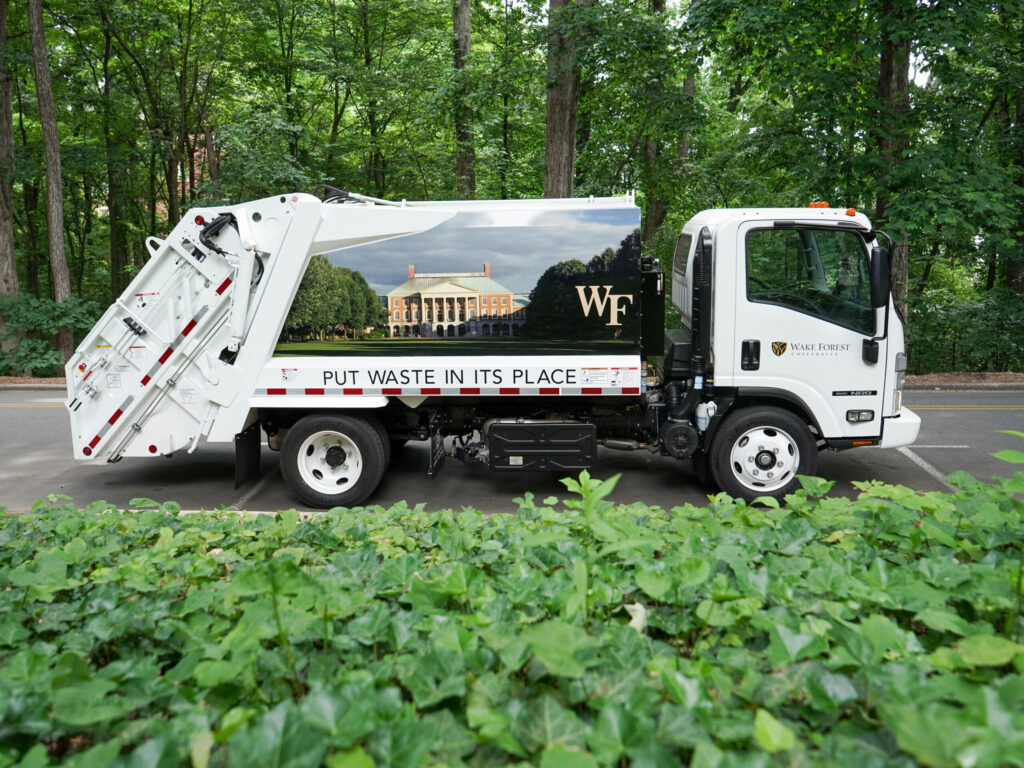
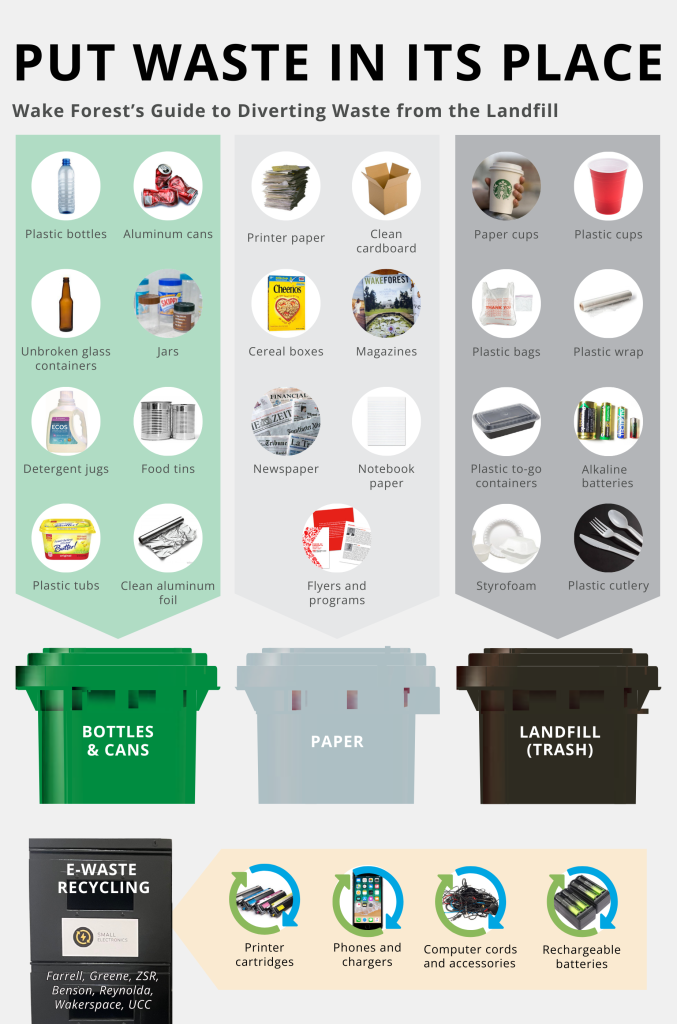
Organics Collection & Composting
When organic materials cannot be salvaged for consumption, composting provides an avenue for that material to be upcycled. Composting is the biological decomposition of organic waste (e.g. food or plant matter) by bacteria, fungi, worms, and other organisms under controlled conditions. This decomposition produces compost, a nutrient-rich substance that can be added to soil to aid in plant growth. You can find numerous resources for composting at home online, including on the EPA’s website.
The WFU compost program is a partnership with Gallins Family Farm, a local business that takes organic waste and turns it into a nutrient-rich soil amendment. This process prevents food waste from ending up in the landfill, decreases methane production, and creates a useful and high quality product.
Composting at Dining Facilities
Organic material is collected for composting in several dining locations. All pre-consumer food waste is collected at the Fresh Food Company (the Pit), North Dining, Smith’s Cafe in ZSR Library, and Zick’s. North Dining Hall was built as a zero-landfill facility, so all pre and post-consumer food waste is collected at North Dining. Collecting organics can be difficult in public spaces, as it’s important to keep the bin free of contaminants.
Composting at the Campus Garden
We have a longstanding partnership with the Campus Kitchen at Wake Forest University. Any excess food that cannot be salvaged for meals by Campus Kitchen is brought to the Campus Garden to be turned into rich compost for our garden beds. In return, a portion of the produce grown at the Campus Garden is distributed to families in need in the community through Campus Kitchen to help combat food insecurity in Winston-Salem and Forsyth County.
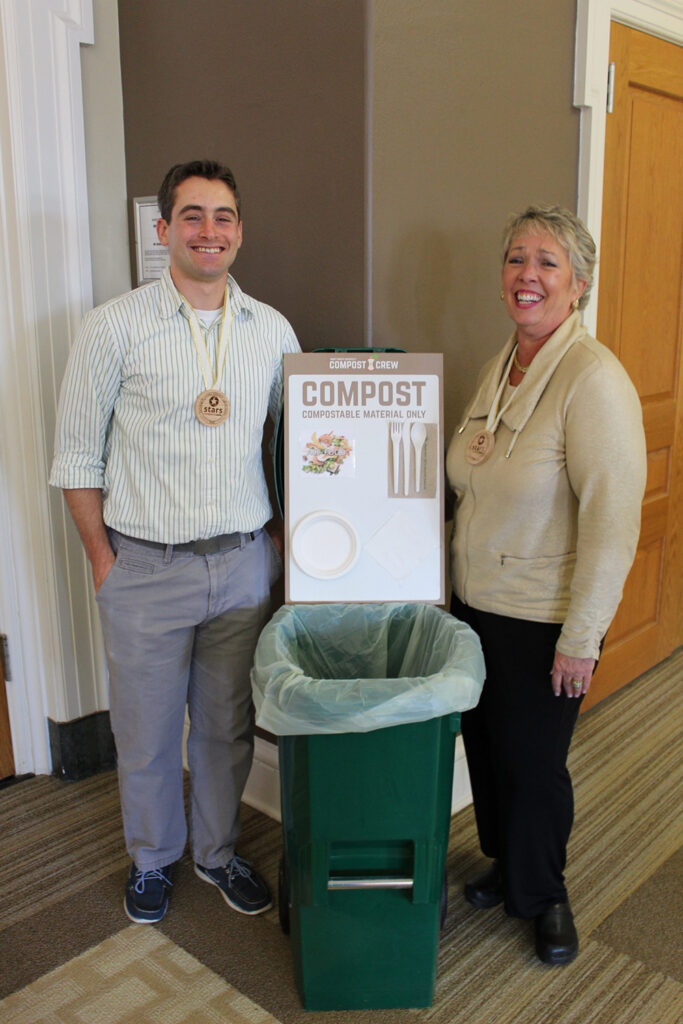
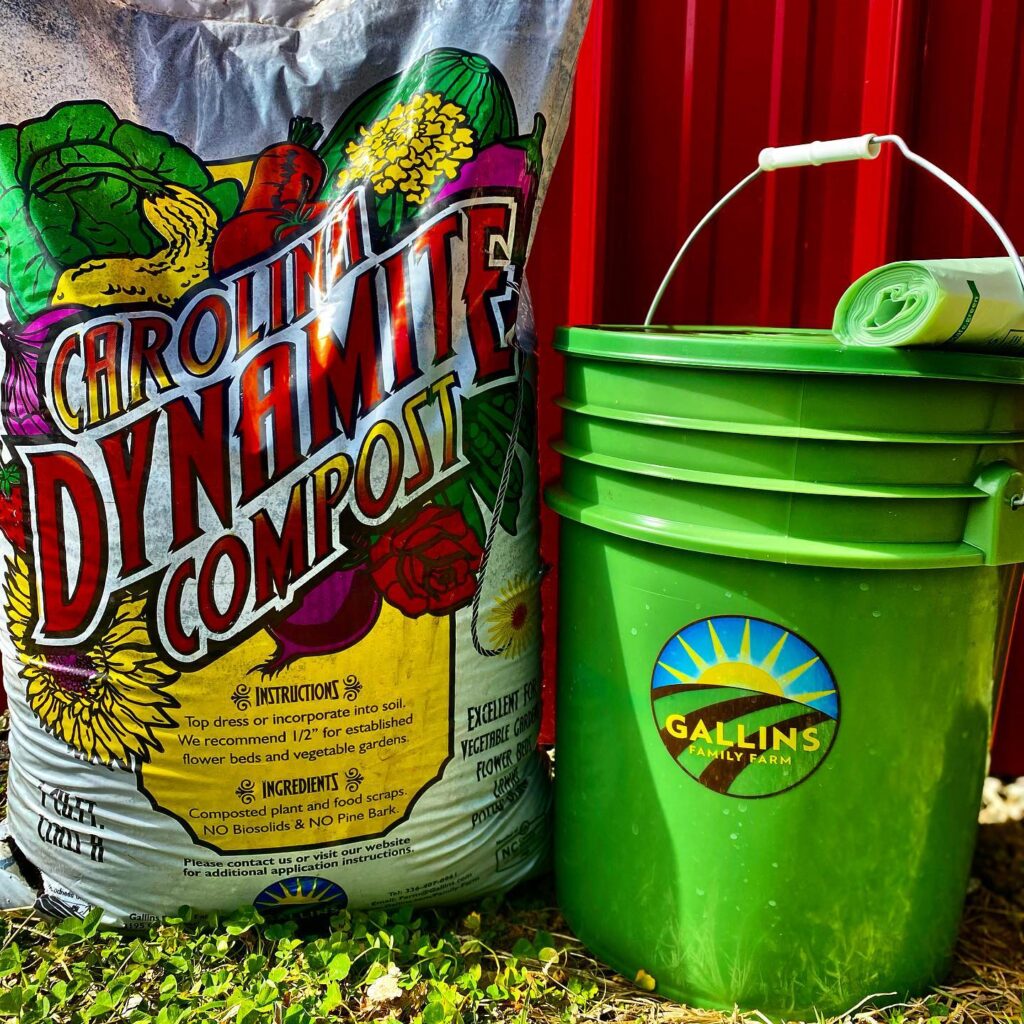
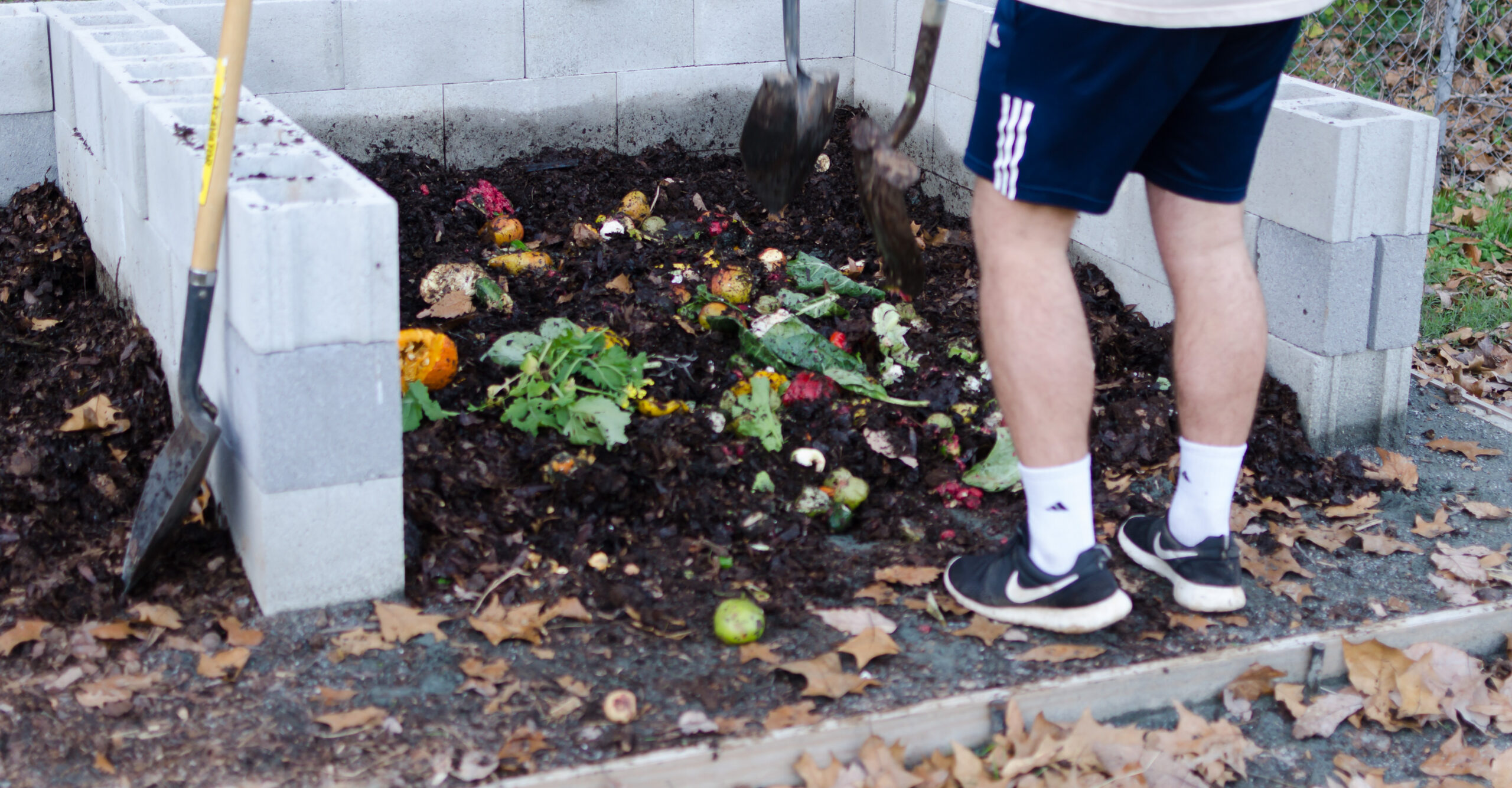
Choose to Reuse
We aim to make using reusable water bottles a convenient choice for all Wake Forest students, staff, and faculty. When surveyed in the 2010-2011 academic year, campus users indicated that they wanted a convenient way to obtain chilled, filtered water on campus. Over a decade later, there are now 200+ water refill stations conveniently located in high traffic areas around campus that fulfill this need and keep a running count of how many disposable bottles are eliminated through their use. In addition, we provide free, reusable bottles during many of our outreach activities that encourage our campus community to #ChoosetoReuse.
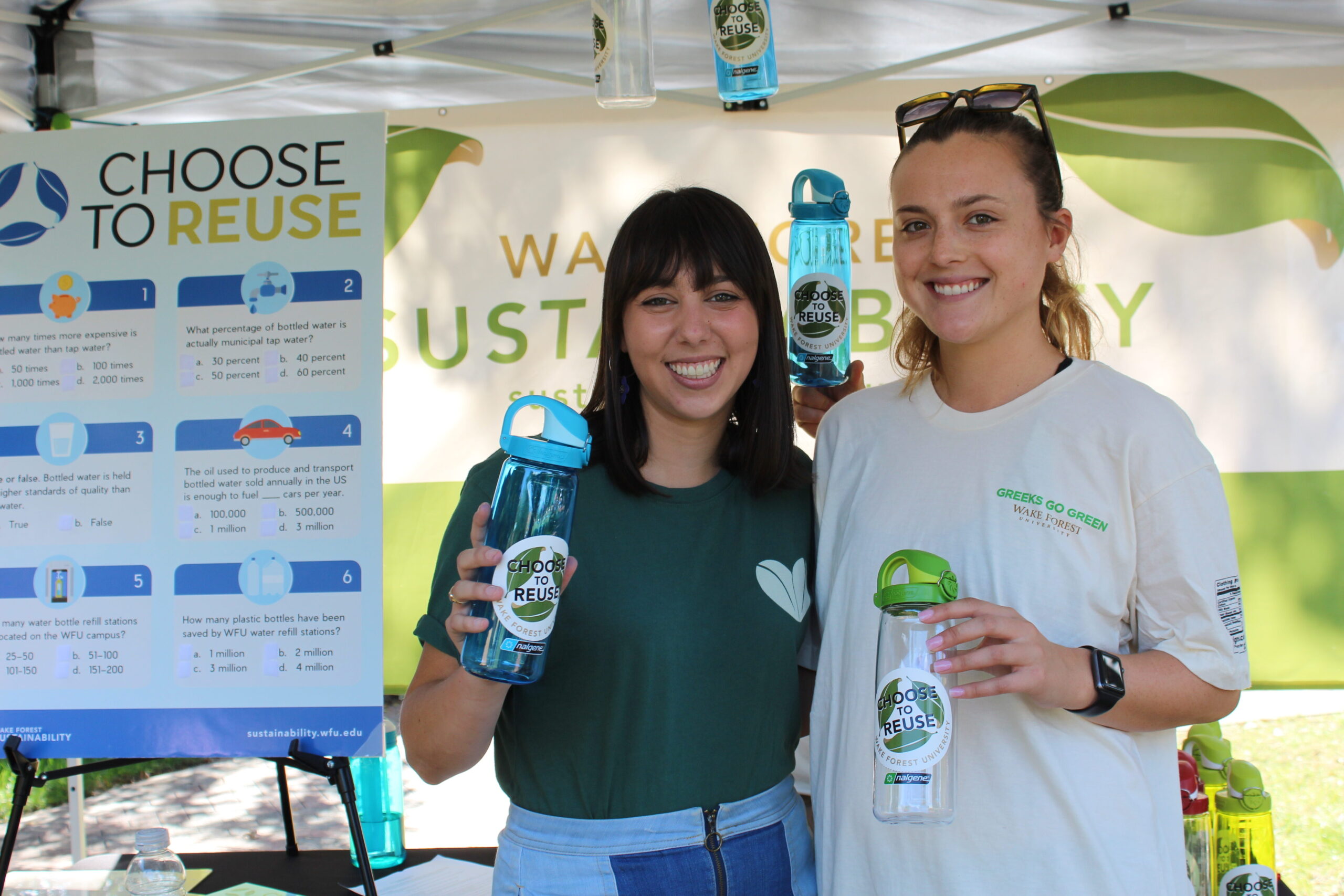
Related Posts
- Wake Forest Alumna and Former Office of Sustainability Intern Becomes AASHE Finalist
 Quin Wolters (’23) returned to her alma mater this fall as […]
Quin Wolters (’23) returned to her alma mater this fall as […] - Move Out, Don’t Throw Out Before Winter Break
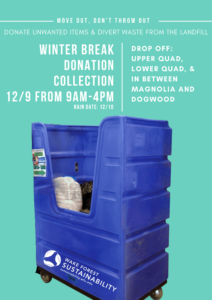 Students — as you prepare to head home for winter break, […]
Students — as you prepare to head home for winter break, […] - Move Out 101: Move Out, Don’t Throw Out
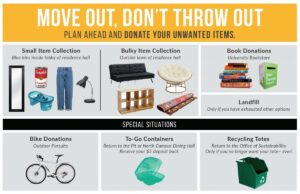 Q: How can I divert waste from the landfill as I […]
Q: How can I divert waste from the landfill as I […] - We’ll Do the Dirty Work
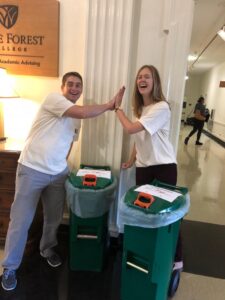 Not all heroes wear capes. In fact, some don tan shirts […]
Not all heroes wear capes. In fact, some don tan shirts […] - Refilling Stations Flow through CampusRefilling stations are becoming the norm at Wake Forest University, with […]
- Where Are They Now: Frannie SpeerStudents around campus are changing the way they think about hydration […]
